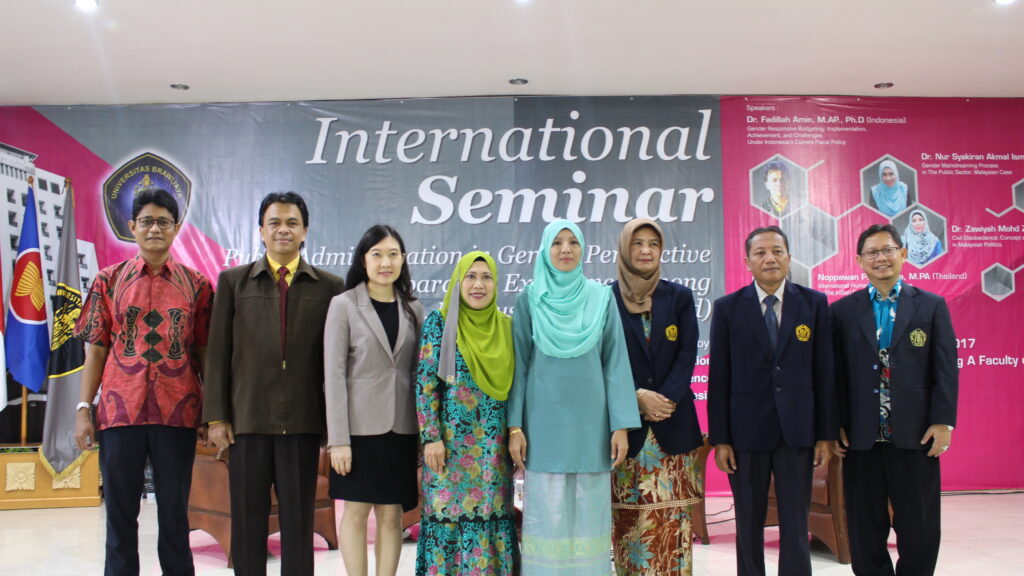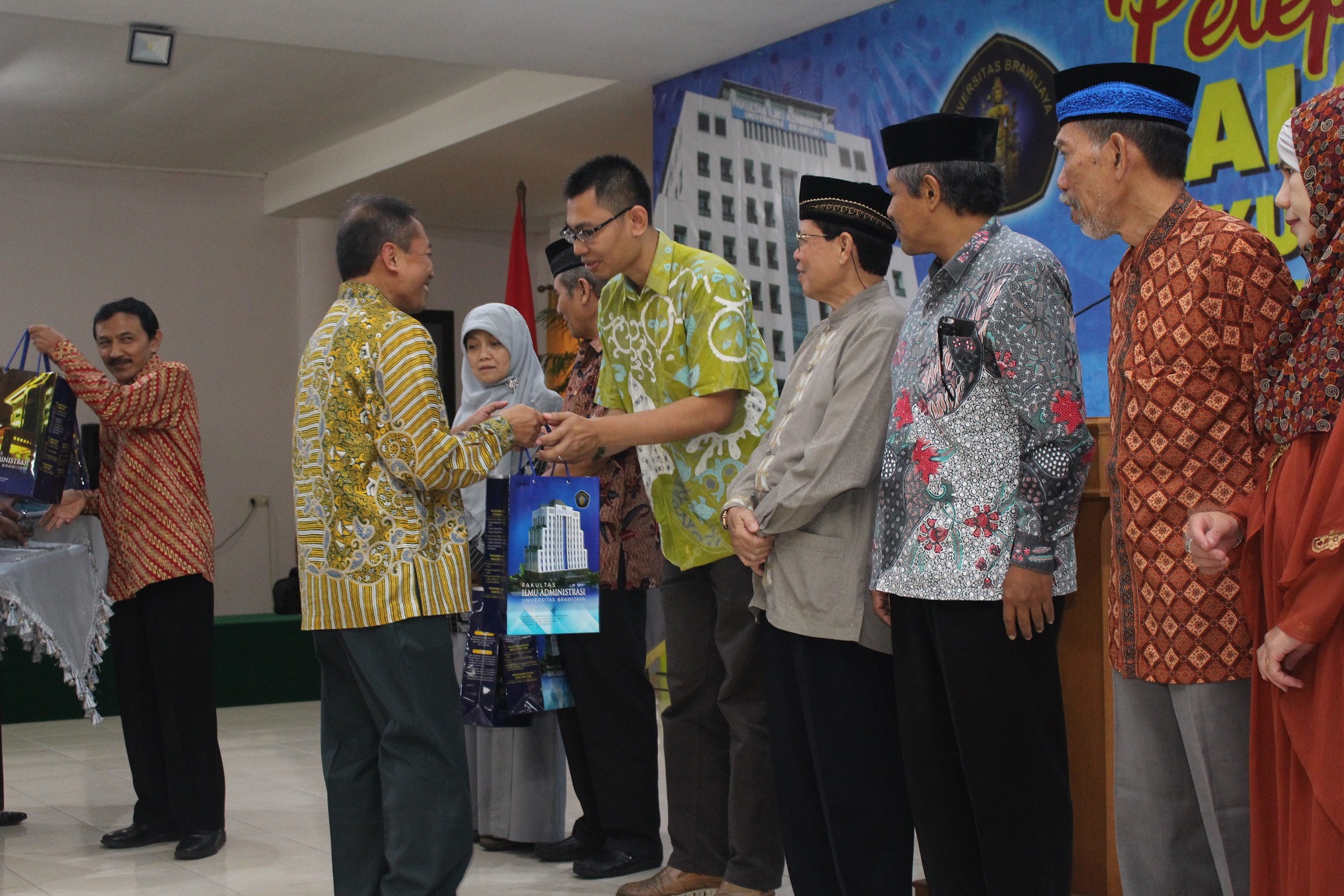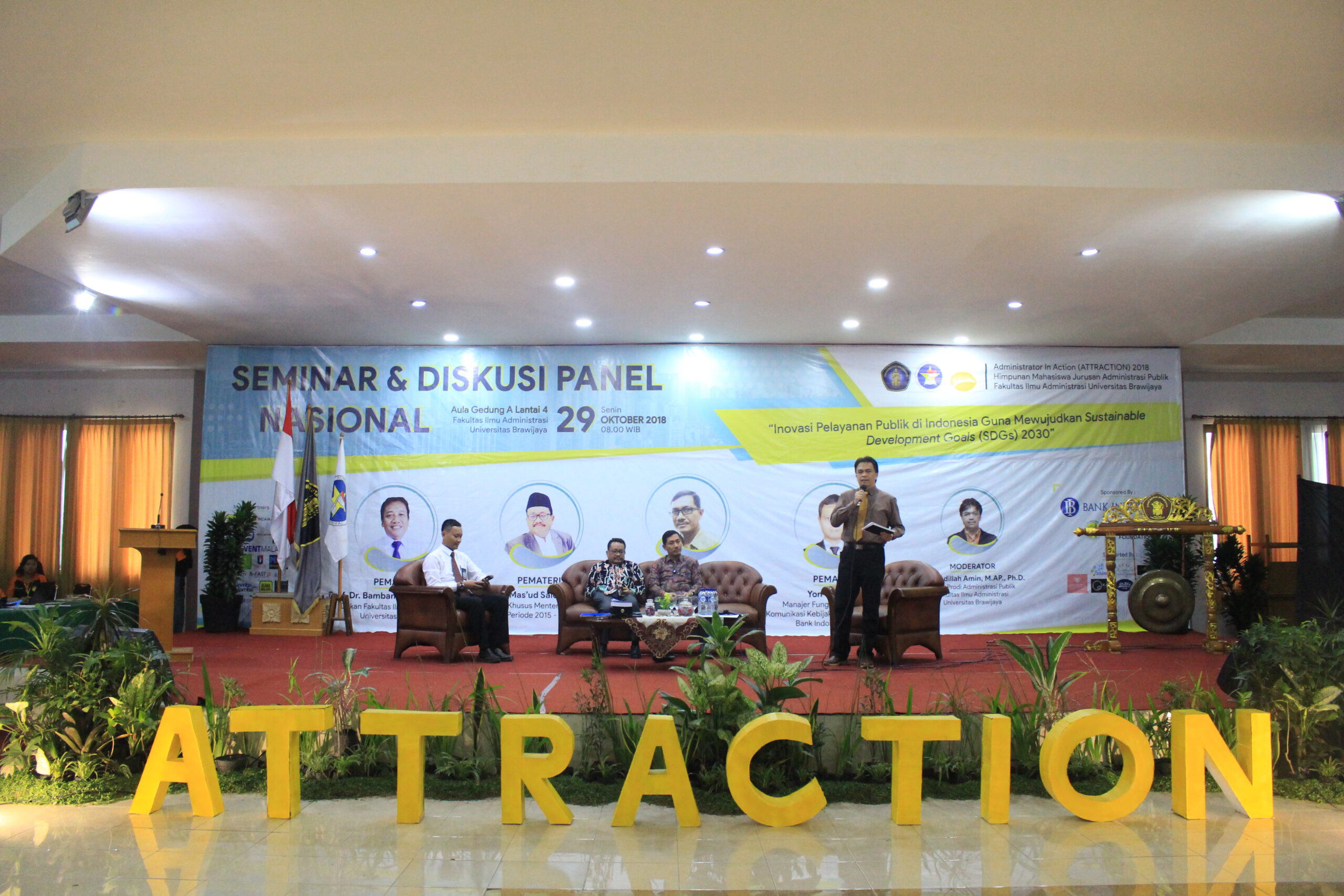The Faculty of Administrative Sciences, Universitas Brawijaya (FIA UB) is again holding an international seminar. This time, the seminar entitled "Public Administration in Gender Perspective (Comparative Experience Among Indonesia, Malaysia, and Thailand)” It presents four presenters, namely Dr. Fadhillah Amin, M.AP, Ph.D (Brawijaya University), Dr. Nur Syakiran Akmal Ismail (Universiti Utara Malaysia), Dr. Zawiyah Mohd Zain (Universiti Utara Malaysia), and Noppawan Phuengpha, M.PA (Burapa University, Thailand). The activity was centered in the Hall of Building A FIA UB 4th Floor, Monday (12/9).
In the opening said by the Dean of FIA UB, Prof. Dr. Bambang Supriyono, MS., said that the International Seminar that was held was not only limited to delivering material from each speaker, more than that, this seminar was an event to share experiences in the implementation of Public Administration Policies from a gender perspective from each country ( Indonesia, Malaysia and Thailand). "From this seminar I hope we can gain broader insights about gender-based public policies in three major ASEAN countries," said the Dean.

One of the presenters, Dr. Zawiyah Mohd Zain, explained about the non-compliance of the population towards public or legislative policies that occurred in Malaysia from the era of Mahathir Mohamad to the era of Najib Razak. According to Zawiyah, as an act of rejection of public or legislative policies, the method used by the public to express their opinions is by holding demonstrations on the streets (street demonstrations). "Pro-democracy groups usually do this to demand changes to the government, regarding issues related to politics and administration," said Zawiyah.
In the next presentation, Dr. Nur Syakiran Akmal Ismail reviews about mainstreaming gender as the aim of realizing equality for women and men in every planning action, including legislation, policies and programs, in all areas and all levels. Studies show that gender mainstreaming has been applied to organizations, even though its existence is still at a soft (low) level. This occurs because public awareness of gender equality is still low, thus affecting the effectiveness of the gender mainstreaming process. Therefore, the public sector does not pay much attention to gender issues in their organizations, and does not make it part of the organizational agenda. In the end, the agenda did not appear as a concern for the government as a whole to increase attention to gender issues to achieve gender equality.






